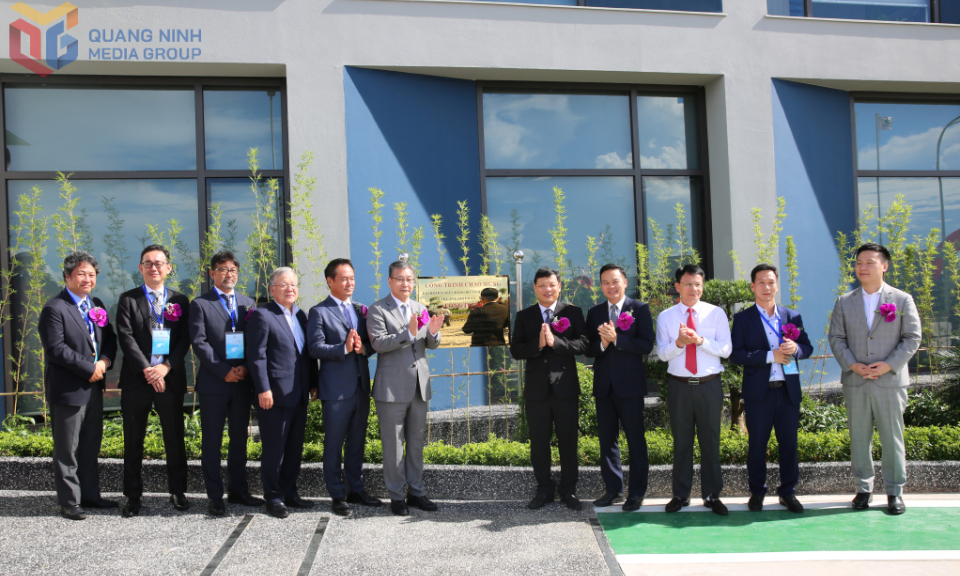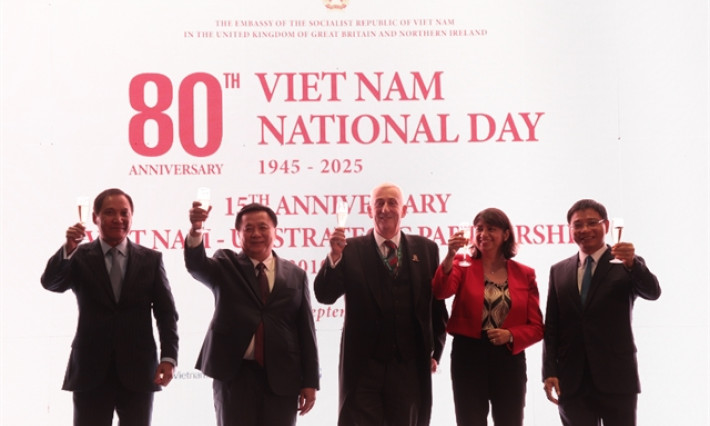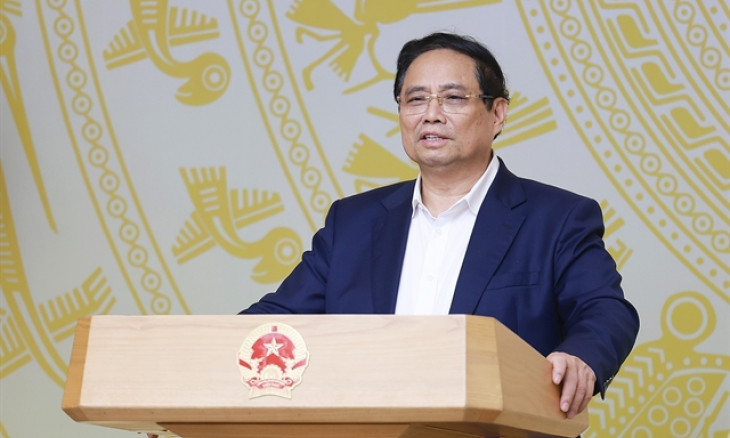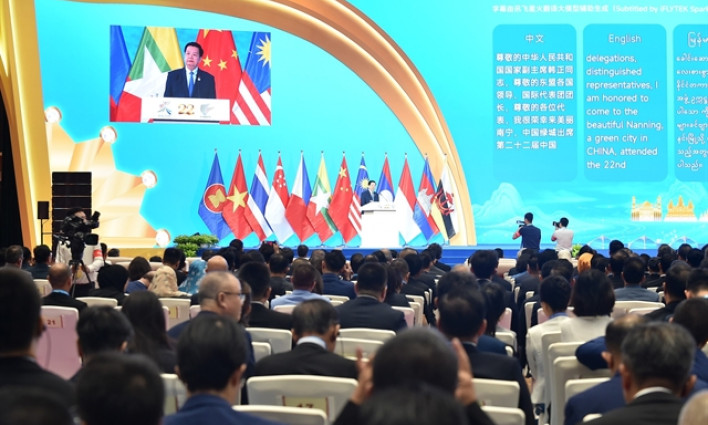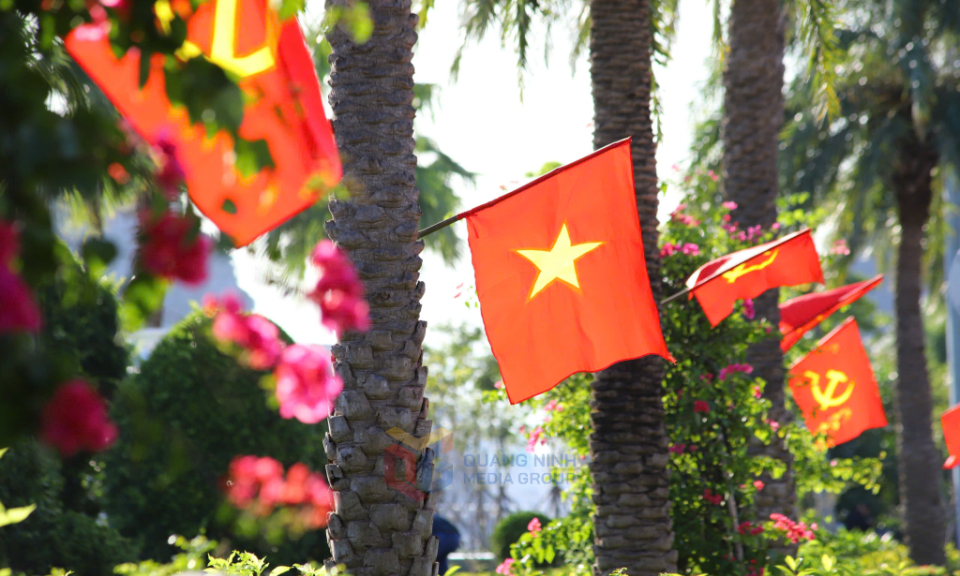Tourism awaits breakthrough in visa policies
Global tourism is experiencing a faster-than-expected resurgence, intensifying the competitive landscape among tourist destinations.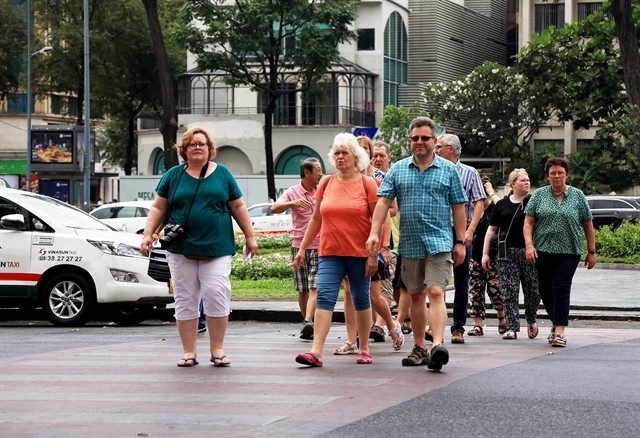
In a report to the Prime Minister outlining tasks and solutions to create breakthroughs in tourism recovery and development, the Ministry of Culture, Sports, and Tourism (MCST) proposed continuing to relax visa policies.
According to statistics, Vietnamese tourism has shown signs of improvement in the first 10 months of 2023. By the end of October, the total number of international visitors reached 10 million, surpassing the target of 8 million set by the tourism industry earlier this year. However, compared to the pre-pandemic period in 2019, this number is only 69 per cent.
Analysing the reasons for international visitors not meeting expectations, Minister of Culture, Sports, and Tourism Nguyễn Văn Hùng stated that some traditional key markets, despite gradually opening their doors, have not regained their growth momentum as before the pandemic. Meanwhile, the connection and exploration of new and potential markets are slow and face many difficulties. In addition, other factors such as inflation, increased exchange rates, political conflicts, and reduced travel budgets have significantly affected the number of international visitors to Việt Nam.
To seize opportunities, overcome difficulties, and boost tourism demand, the MCST proposes studying short-term visa exemptions for tourists from potential markets, such as China and India, to stimulate tourism demand. At the same time, unilaterally expanding visa exemptions for citizens of countries with higher development levels than Việt Nam, who spend large amounts on tourism, such as Australia, Canada, the United States, and other EU countries, is suggested. Consideration and pilot implementation of on-the-spot visa approval for international tourists at border gates and testing the issuance of long-term visas (three and five years) to attract high-end tourism markets and retirees.
Additionally, optimising and simplifying the electronic visa application process, ensuring a user-friendly website interface, and providing specific information on visa processing times are proposed.
Agreeing with the ministry's solution, the Hồ Chí Minh City Department of Tourism believes that the visa issue is one of the factors that need to be addressed to boost tourism growth in the city and the country as a whole. Currently, Việt Nam's visa system has been open with the implementation of electronic visas in all markets. However, the related procedures and visa approval processes are still slow and not truly convenient, taking a considerable amount of time to complete.
Furthermore, compared to other countries in the region, the number of countries that Việt Nam grants visa exemptions to is still relatively low. "This leads to the fact that the number of visitors from key markets and potential markets still incurs high costs and takes a lot of time for approval. As a result, tourists gradually shift to directly competitive markets such as Thailand and Singapore," said the leader of the Hồ Chí Minh City Department of Tourism.
Concerns about falling behind in the race for tourists
On November 4, speaking on the sidelines of the 23rd Global Summit of the World Travel and Tourism Council (WTTC) held in the capital city of Kigali, Rwanda, WTTC CEO Julia Simpson predicted that this year, the world's smoke-free industry would return to 2019 levels, and some regions have even exceeded the revenue of 2019.
Simpson suggested that governments should strive to reduce visa restrictions and expedite visa application processes to further support international tourism. According to calculations, the convenience of entry visa issuance is likely to increase international visitors by 5-25 per cent per year. That is also the reason, when returning to the tourism race after the COVID-19 pandemic, many destinations have proactively leveraged visa policies.
Two weeks after the information from WTTC, Prommin Lertsuridej, assistant to Thai Prime Minister Srettha Thavisin, stated on November 19 in the Bangkok Post that the country's leadership is taking "bold steps to stimulate the national economy" through plans to further exempt visas for some European countries.
Specifically, the Thai government is discussing allowing citizens of some European countries to stay for 90 days, three times longer than at present. In the first phase, countries benefiting from this policy are expected to include the UK, Germany, and Scandinavian countries. Earlier, Thailand also temporarily granted visa exemptions to tourists from Russia, China, Kazakhstan, India, and Taiwan during the peak tourist season at the end of the year, while requiring airlines to reduce waiting times for passengers at airports.
Since taking office in August, Prime Minister Thavisin has identified tourism as the key to boosting the country's economic growth and set a goal of achieving US$57 billion in tourism revenue by 2024.
Immediately after the announcements from the Thai government, Song Shiyou, the head of the visa policy and consular affairs department at the Chinese Ministry of Foreign Affairs, also stated that the country has resumed its unilateral visa waiver policy and simplified visa application procedures for applicants.
In addition, international ports in China are implementing a 24-hour visa waiver policy for people from all countries. Furthermore, China has expanded its visa waiver policy to Norway, increasing the total number of countries and regions covered by this policy to 54.
Since September, the Chinese government has released a report addressing issues hindering the attraction of international tourists, identifying simplifying visa issuance procedures and increasing visa waiver incentives as one of the top solutions.
In the same region, Indonesia, Malaysia, Singapore, and Cambodia have all introduced "golden visas" valid for 5-20 years to attract wealthy individuals worldwide to stay longer and spend more.
Continuous updates on new policies from various countries have raised concerns among leaders of major tourism development groups in Việt Nam.
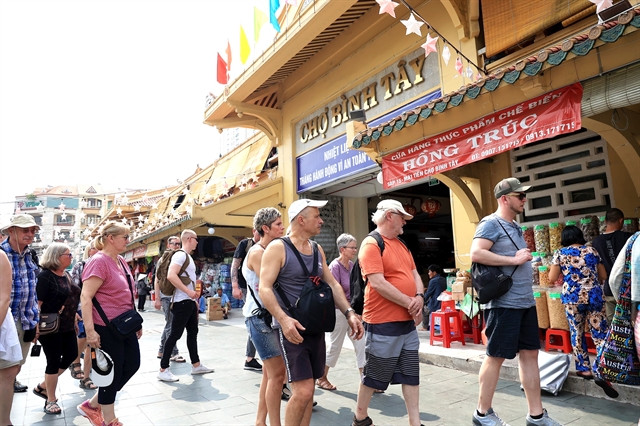
Competing requires policies
In reality, Việt Nam has learned from experience when unilaterally granting visa exemptions to seven countries, including three important markets: South Korea, Japan, and Russia, which has brought significant positive outcomes. In 2004, this group of tourists to Việt Nam amounted to only 529,000, but by 2014 - the year the unilateral visa exemption policy was implemented, the number of visitors had surged by a staggering 352 per cent, reaching over 1.8 million, more than one and a half times the average total number of visitors to the country at that time (a 269 per cent increase). Since then, these three countries have consistently been among the top markets sending visitors to Việt Nam, especially South Korea.
Similarly, just nine months after Việt Nam officially decided to exempt visas for five Western European countries including Italy, Germany, Spain, the UK, and France, the number of tourists from these nations visiting Việt Nam had increased significantly by 20 per cent, and the growth remained stable every quarter and year.
According to recent figures from the Ministry of Public Security, since the Immigration Law took effect on August 15, about 5.6 million foreigners have entered Việt Nam, an increase of 1.8 times compared to 2022. Specifically for unilateral visa exemptions, since the implementation of the new visa policies, over 1.25 million visitors as of November 14 have entered Việt Nam under the unilateral visa exemption, more than 1.6 times higher than last year. Among these, the highest numbers come from South Korea (886,671 visitors), Japan (151,529 visitors), followed by the UK, France, and Russia.
Trần Đình Thiên, former Director of the Vietnam Institute of Economics, believes that since the Ministry of Public Security opened up more flexible visa policies, the tourism sector has recorded positive growth. However, our visa for tourism, our tourist passport, is still slow.
"Tourism development must have a long-term vision, set high goals, and be challenging to turn challenges into opportunities. Currently, the country's openness is very good; we must ensure that tourism is commensurate with that openness so that a comprehensive new strategic approach can be achieved. From policies, procedural issues need to approach it from that direction, take a step ahead, open up more to allow the tourism industry to seize the opportunity," emphasised Thiên.
Which markets should be granted visa exemptions?
SunGroup proposes that the government unilaterally expand visa exemptions for citizens of countries with higher development levels than Việt Nam, who spend large amounts on tourism and have long-term stays, such as Australia, Canada, the United States, other EU countries, and some Middle Eastern countries such as the UAE, Saudi Arabia, Kuwait.
The European Chamber of Commerce in Việt Nam (EuroCham) suggests expanding the list of tourist visa exemptions to include the 27 EU member states. Meanwhile, the Tourism Advisory Board (TAB) recommends adding 33 more unilaterally exempted countries, including the remaining 20 EU countries, the United States, Australia, New Zealand, Canada, Switzerland, Israel, South Africa, Turkey, Brazil, Argentina, Saudi Arabia, Kuwait, and the UAE. In particular, TAB proposes that the government consider reviewing and examining four countries and territories as potential strong tourism development markets, including China, Taiwan, Hong Kong, and India, and unilaterally exempt visas for 30 days, allowing participants in special types of tourism such as golf tourism, private jet tourism, or special events such as sports competitions, forums, and national-level tourism fairs.
This comprehensive report on visa policies reflects the dynamic landscape of global tourism competition and the strategic considerations Việt Nam needs to adopt to remain competitive in luring international visitors. The continual evolution of policies by other nations necessitates Việt Nam's agility and responsiveness to ensure its position in the global tourism market.

